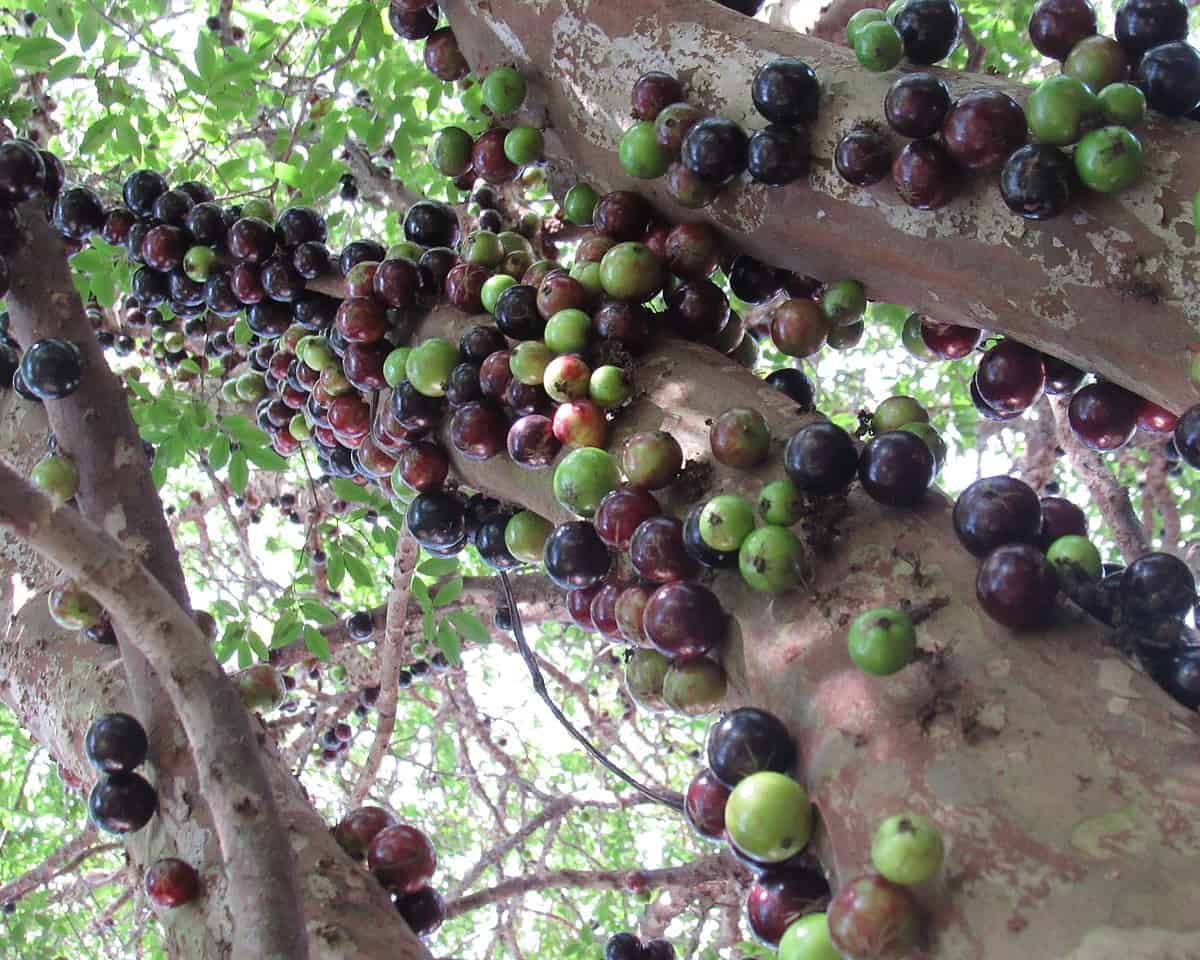Here’s a special rare fruit tree that tropical gardeners can grow in Costa Rica: jaboticaba, a native Brazilian tree with grape-like fruits. Known as mamón brasileño in Spanish, jaboticaba (Eugenia cauliflora) is well known for its sweet fruits. With this tree in your backyard, there’s not much need to buy grapes.
The Jaboticaba tree is unique in that it bears fruit directly on its trunk and branches, rather than on the tips of its shoots like most other fruit trees. The fruit is small, about the size of a grape, with a thin purplish-black skin and a sweet, juicy white pulp.
People who have eaten jaboticaba say its flavor is something between a cherry and a grape. The delicious juice can also be made into jams and jellies, as well as wine.
To see a tree in full harvest is truly awesome, in the truest sense of the word. Eating the fruit is paradise. Harvests on mature trees often reach five bushels, and to top it off, they can produce twice a year. Thousands of fruits are borne on the trunks of the branches, rather than at the end of the branches, as with most fruits.
This marvelous tree does well in coastal, intermediate and highland regions of Costa Rica. Many leading nurseries carry seedling trees, or you can start your own at home by seed.We just had a bumper crop of “grapes,” and we have plenty of seeds for interested gardeners.
Seeds can be planted in plastic nursery bags in rich, fertile soil in the greenhouse. When the seedlings are a year old, they can be transplanted to permanent sites. These trees require rich, fertile soil and full sun or partial shade for good growth. A minimum planting distance of four meters is needed between trees, though I recommend eight meters.
Jaboticabas are hardy trees that have no significant insect pest problems, and they require minimal attention and irrigation during the dry season. Yearly applications of aged compost and organic fertilizers help to ensure good harvests and healthy trees.






